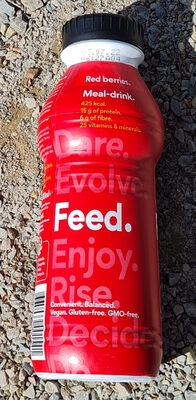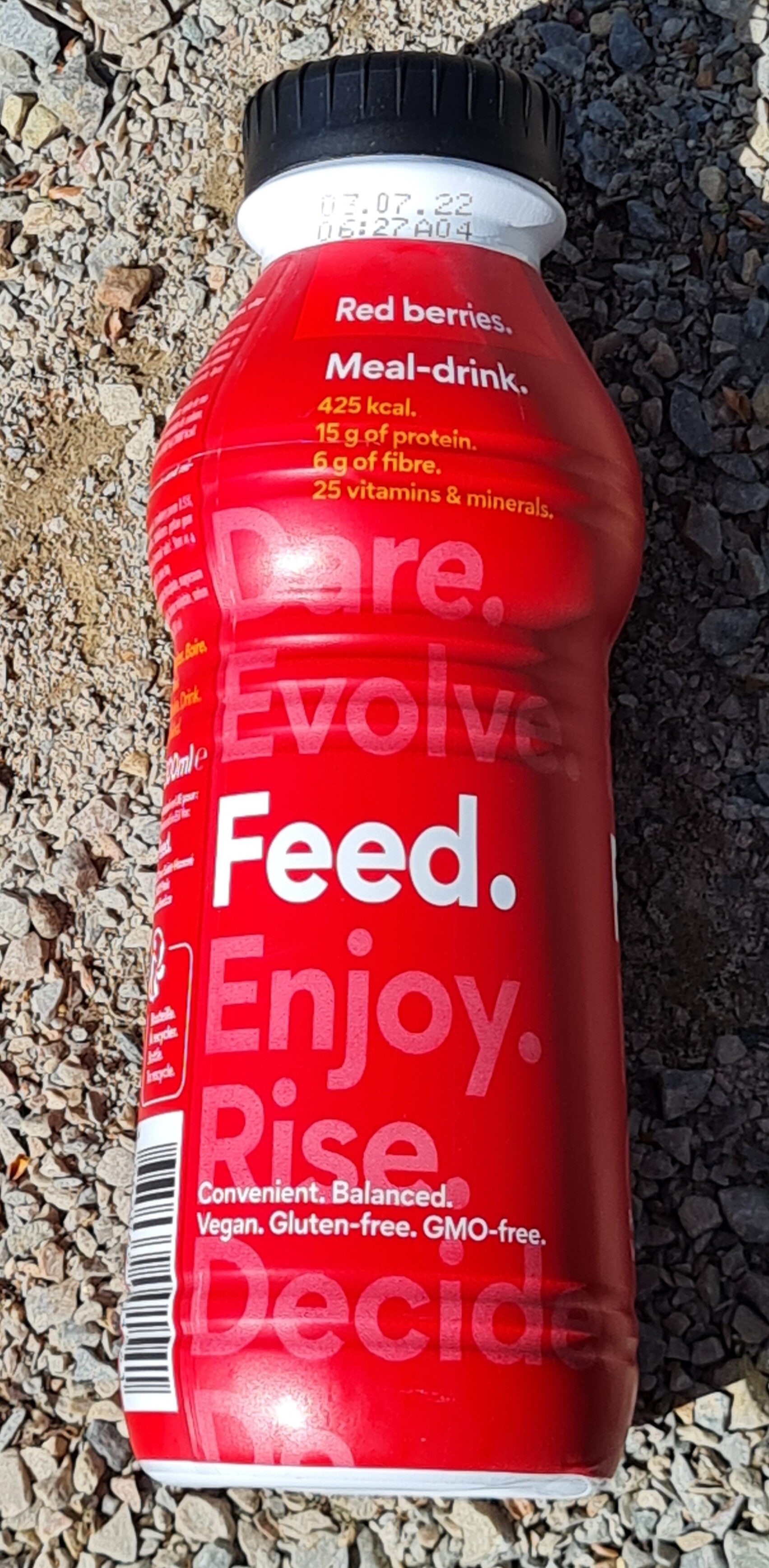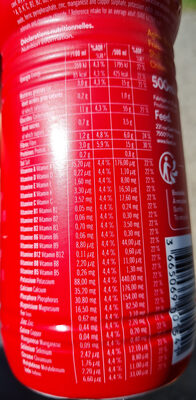Boisson-repas Fruits rouges - Feed - 500ml
Ambiguous barcode: This product has a Restricted Circulation Number barcode for products within a company. This means that different producers and stores can use the same barcode for different products.
×
This product page is not complete. You can help to complete it by editing it and adding more data from the photos we have, or by taking more photos using the app for Android or iPhone/iPad. Thank you!
×
Barcode: 01484911
Quantity: 500ml
Packaging: Plastic
Brands: Feed
Categories: Beverages, Dietary supplements, Bodybuilding supplements, Energy drinks, Energy drink without sugar and with artificial sweeteners, Protein shakes
Labels, certifications, awards: No gluten, Vegetarian, No GMOs, Vegan
Origin of ingredients: European Union
Manufacturing or processing places: Union européenne
Link to the product page on the official site of the producer: https://www.feed.co/products/bouteille-o...
Countries where sold: France
Matching with your preferences
Environment
Packaging
Transportation
Report a problem
Data sources
Product added on by openfoodfacts-contributors
Last edit of product page on by roboto-app.
Product page also edited by off.00af8958-0179-4ca2-81f3-307397a68555.








